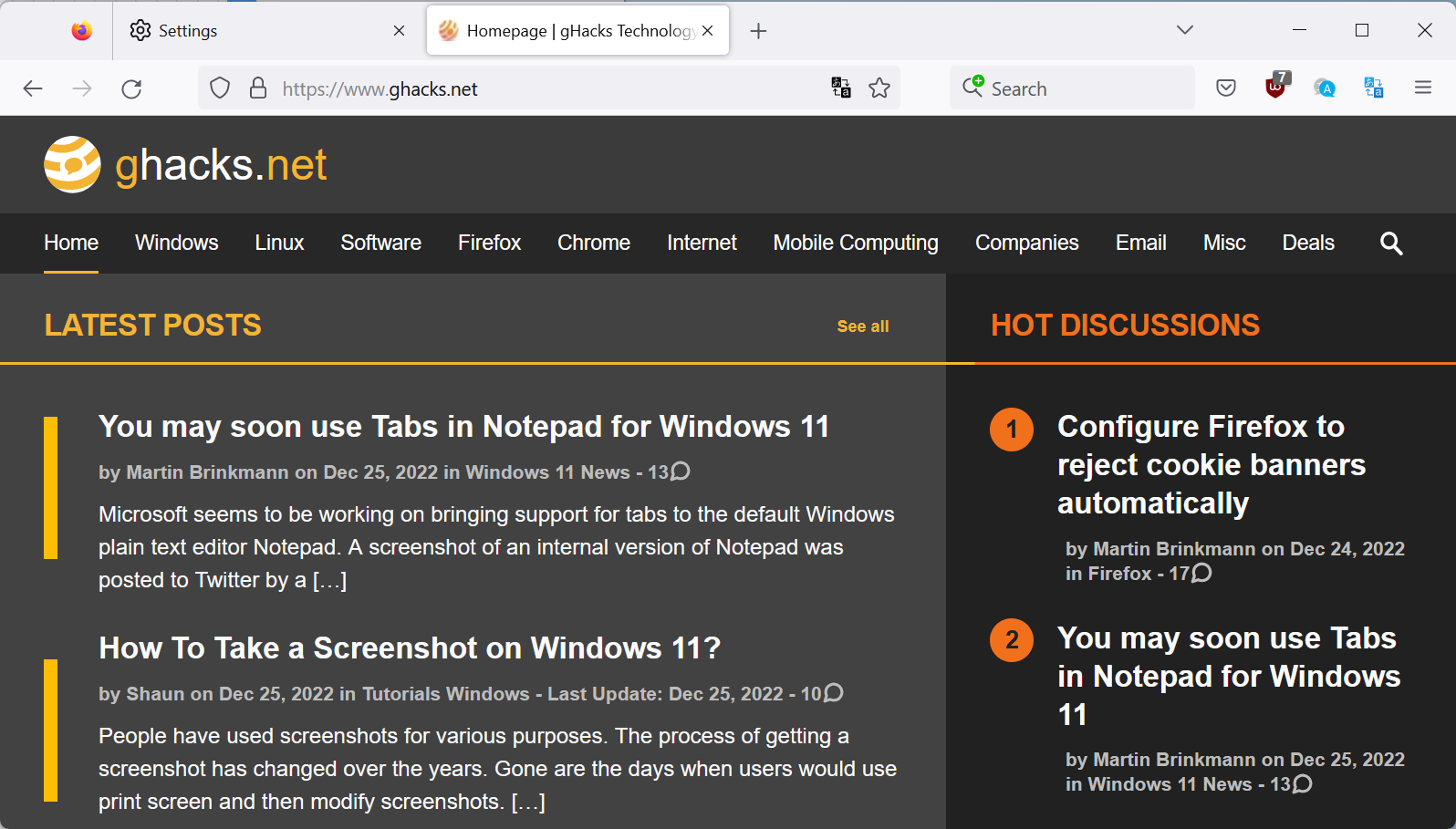Firefox users who use Accessibility tools in the web browser will soon notice huge performance improvements. Accessibility tools, like screen readers, help users access content provided by the web browser and the displayed websites and applications.

These tools need to interact with the browser and react to changes made by the user or the site in question. When a user navigates away from a page, new content is loaded, which the Accessibility tool needs to access.
If there is too much delay, because of slow operations or other issues, then it may become a drag to use Firefox for accessing content on the Web.
Firefox users on Windows and Linux will benefit from the improvements when versions 111 and 112 are released. The changes are being tested in Firefox Nightly already and Mozilla plans to roll them out in Firefox Beta in January when Firefox Beta 110 is released.
Mozilla ran benchmarks to test the new architecture against the classic architecture that Firefox uses currently.
Opening a Gmail message from the inbox, for instance, takes 100ms now compared to 200ms before. Similarly, closing a Gmail message and returning to the inbox takes 150ms under the new architecture, opposed to 410ms under the old.
The gains when loading large documents, tables and other content are even more impressive. A test on a large document, the very large HTML Standard Spec, improved the performance from 175 seconds to just 15 seconds. Another test, this one one a page with a tablet with over 12000 rows, saw loading performance improve from 128 seconds to 6 seconds.
Mozilla admits that Firefox's new architecture for Assistive Technologies is similar to the Chrome implementation, but that it is different in three key aspects.
The explanation is somewhat technical, but the key takeaways are that Firefox's implementation saves memory, reduces complexity, and that hit testing is more accurate. Hit testing is a special use case in which the Assistive Technology requests data on a specific x, y location on the screen.
Mozilla published details on the implementation here. It provides a historical background on the implementation, starting with pre-multi-process Firefox and the years that followed. It is an interesting read.
Firefox users may start testing the new Assistive architecture in Firefox Nightly for Windows and Linux right away. The stable rollout for these two operating systems will happen in February and March, with the releases of Firefox 111 and 112. The Mac version is still in development, but should be released in the first half of 2023 as well.
Now You: do you use Assistive Techologies?
Thank you for being a Ghacks reader. The post Firefox's Accessibility Performance is getting a huge boost appeared first on gHacks Technology News.


0 Commentaires